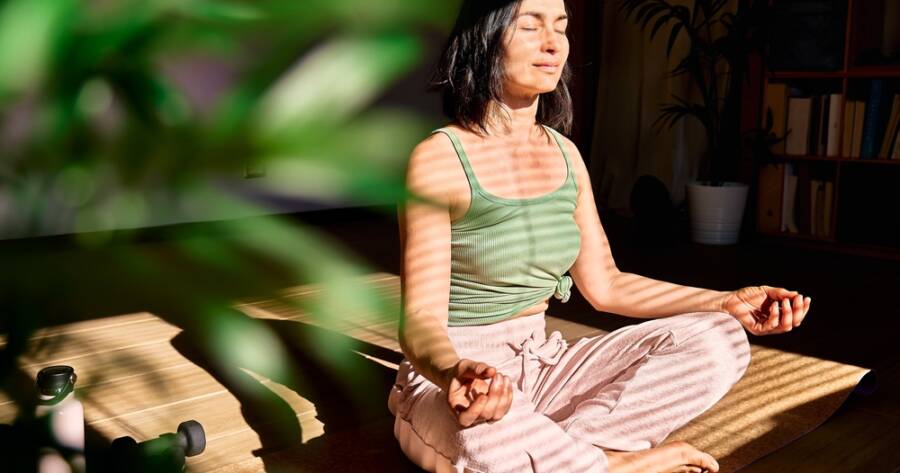People living in the world’s “Blue Zones” often reach 100 years old—and stay active, happy, and deeply connected while doing so. These regions show us that long life isn’t just about diet or exercise. It’s about purpose, community, and a lifestyle built around a holistic balance. Here’s how their healthy habits can inspire your own journey.
What Are Blue Zones?
“Blue Zones” are regions where people live longer than average and tend to enjoy better quality of life as they age. The term was first used by Dan Buettner, a researcher who identified five of these areas: Okinawa (Japan), Ikaria (Greece), Sardinia (Italy), Nicoya (Costa Rica), and Loma Linda (California).
These regions aren’t just about statistics. They offer a window into how certain choices—eating fresh food, staying active, and maintaining strong social ties—can shape a meaningful life. Perhaps most important is their shared sense of purpose, which researchers say plays a powerful role in both health and happiness.
Living With Purpose Every Day
In Okinawa, people refer to ikigai, a reason to wake up each morning. In Nicoya, it’s plan de vida, a life plan. Though the names vary, the idea is the same: life feels fuller when it has direction. Purpose gives us energy and focus. It helps us get through hard times and adds joy to ordinary days.
This purpose doesn’t need to be grand or complicated. For some, it’s tending a garden. For others, it’s helping neighbors or teaching grandchildren how to cook. In Blue Zones, people often keep contributing to their communities well into old age. They don’t “retire” from meaning or connection. Instead, they remain engaged.
Modern life often pulls people away from what matters most. Between long work hours and endless distractions, it’s easy to lose that sense of direction. But even small changes—like volunteering, starting a new hobby, or reconnecting with loved ones—can reintroduce purpose to everyday life.
The Role of Community and Belonging
One striking feature across all Blue Zones is the strength of social connection. People spend time together regularly, whether through shared meals, religious gatherings, or casual daily interactions. They know their neighbors. They have support networks. And they feel seen.
This social fabric matters more than we often realize. Studies have shown that loneliness can have serious health effects, comparable to smoking or obesity. In contrast, strong social ties can boost mental health, lower stress, and even lengthen lifespan.
In Sardinia, multigenerational families are common, and elders are valued for their wisdom. In Ikaria, friends gather over coffee and conversation with no rush. In Loma Linda, shared religious practices foster both belief and belonging. These examples remind us that connection—whether spiritual, familial, or social—is key to well-being.
Simplicity, Movement, and Mindful Living
While purpose and community drive emotional health, physical habits also shape Blue Zone life. But unlike intense fitness plans or strict diets, the routines here are gentle and consistent. People walk, garden, or do household tasks that keep them moving. Exercise is built into their day, not scheduled as a chore.
Food choices tend to follow traditional, mostly plant-based diets. Meals are fresh, simple, and enjoyed slowly. In many Blue Zones, overeating is avoided by following cultural cues—like the Okinawan “hara hachi bu,” which encourages eating until you’re 80% full.
Beyond food and movement, these communities also value rest and reflection. Whether it’s a mid-afternoon nap, a walk through nature, or daily prayer, slowing down is built into the culture. That pause allows for recovery, presence, and gratitude.
How to Apply Blue Zone Wisdom at Home
You don’t need to live in a mountain village or tropical town to benefit from these habits. Blue Zone lessons can be adapted to any lifestyle. Begin by looking at how you spend your time and who you spend it with. Are your days filled with stress, or with meaningful moments?
Start small. Walk more often. Cook meals at home. Call a friend or join a group that shares your interests. Create daily rituals that bring peace and purpose. These changes can build over time into a life that feels more grounded and joyful.
It’s also important to examine your beliefs around aging. In Blue Zones, older people aren’t hidden from view or treated as fragile. They are included, respected, and encouraged to stay active. That mindset helps everyone—not just seniors—feel more hopeful about growing older.
A Life Well Lived
The lessons from Blue Zones are both ancient and deeply relevant today. In a world full of noise and speed, these regions offer a quieter, more lasting kind of success. One where long life and happy life go hand in hand—not because of shortcuts, but because of balance, intention, and care.
You don’t need to move across the globe to live with more purpose. By embracing the spirit of the Blue Zones—through strong relationships, daily movement, simple meals, and heartfelt goals—you can build a life that feels full, meaningful, and truly your own.
Discover What Really Matters
Living well isn’t just about adding years to your life—it’s about adding life to your years. The people in Blue Zones have shown that meaning, movement, and connection are all part of that process. If you’re seeking a happier, healthier path, their wisdom is a powerful place to begin.

